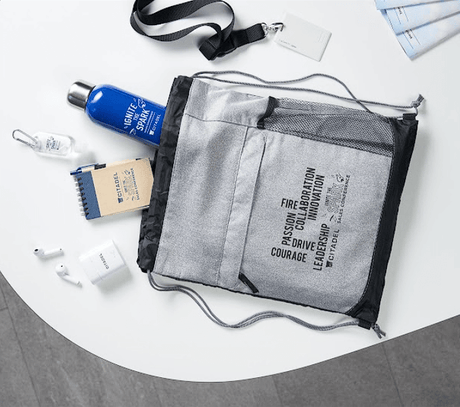I n 2021, US consumers spent on average $998 on gifts, holiday items, and other expenses (Probasco, 2021). Anxiety around gift-giving is an extensively researched area of human psychology, however, gift-receiving? Not as much. In order to understand the importance of giving, it is necessary to account for receiving. The belief that it is more dignified to give than to receive has been reiterated several times throughout people’s lives. To eradicate the thought processes of laser focusing on how to benefit from any situation, gift exchange serves as a safeguard towards becoming self-centered (Amodeo, 2014). The ability to maintain compassion by identifying others’ needs, respecting their feelings, and acknowledging those who are less fortunate shields people from the rampant narcissism that encapsulates their lives (Amodeo, 2014). Everyone has most likely experienced anxiety around gift-giving at least once in their lifetime. This transpires from the feeling of anxiety associated with the whole gifting custom. Gift-giving stress is triggered by the idealistic expectation of the receiver’s exaggerated delightful reaction, whereas gift-receiving anxiety emerges from the gift’s value and usefulness throughout its subsequent ownership, and sometimes from the underlying fear of receiving gifts. Yet, that is not the only reason why people on either end experience anxiety. Given that individuals are familiar with receiving gifts, accepting help, and obtaining compliments being used as a means of exploitation, it is difficult to accept them graciously.
Are you looking for the perfect gift? Watch Our TED Talk!

Possibilities linked to gift-receiving anxiety
Receiving bad gifts can be a greater burden to carry than gift-giving. Individuals find it immensely difficult to even acknowledge a compliment directed at them causing immense gift-receiving anxiety. They silently struggle when someone extends a kind word or a gift leading one to think am I a bad gift receiver? It is worthwhile to contemplate where and how these thoughts and feelings surface. People often wonder “Why do I feel bad receiving gifts?”. The following are some potential reasons why these feelings may take root (Amodeo, 2014):

-
Unleashing Control
Receivers may be caught in a susceptible position, wherein they find themselves giving in to the demands of the givers simply because of the obligation to concede, despite experiencing contradictory feelings.
-
Fear Of Intimacy
The practice of gift exchange inadvertently incites an intimacy and connection that is feared by people particularly if they are not ready to further the relationship or simply want to end it.
-
Strings Attached Dilemma
If growing up one was only acknowledged via a gift for their accomplishments, this may be triggered when receiving a gift into adulthood. Therefore, leading people to equate gifts as a source of their actions versus who they really are causes distrust between individuals.
-
Remorse Associated With Selfishness
Receiving has been paralleled with selfishness and shame, making people question whether they really deserve it. Some people have self-esteem issues, so they feel uncomfortable and overwhelmed to be in the middle of such a situation.
-
Burden Of Reciprocation
The uneasy feeling of indebtedness arises when receiving a gift. By presuming that gifts serve as a route for control and manipulation, people already get into self-protection mode from the sense of obligation and reciprocity of opening themselves to the gift.
Doronophobia
There exists a phobia for everything which inadvertently feeds off fear, settling into anxiety and possibly depression. It inhibits people’s daily activities, leading them to put a limit on them. Individuals suffering from phobias intentionally steer clear of putting themselves into situations that could potentially be triggering (Brookins, 2021). One such phobia is Doronophobia, which is closely related to the fear of receiving gifts. It is the unfounded fear of opening gifts. The phobia stems from opening gifts, wherein individuals experience a feeling of anxiety opening the gift because it is so uncomfortable. They have no ill-intentions when rejecting gifts but rather dread knowing what they will find inside (Peters, 2019). They possess an irrational fear of the item possibly being used to cause them harm, making it potentially dangerous in their minds (Peters, 2019). Not only do they avoid the situation or objects, but in severe cases, the thought processes surrounding it. The individual does not have to even be in the specific situation to experience the symptoms of panic, rather just the fearsome reactions to the thought can induce it (Brookins, 2021). If the problem is not addressed early, it can destruct the social lives of people who are oblivious that they suffer from this condition. Generally, phobias fall under the category of anxiety disorders. Everyone is unique, hence the severity of the phobia varies across individuals. It is not only on holiday occasions and birthdays that these individuals avoid opening a gift but also on packages that arrive in the mailbox, even if it does not belong to them (Peters, 2019). Due to the unknown contents of the package, they do not want to spiral into playing the guessing game. There are both physical and psychological symptoms associated with those undergoing doronophobia (Brookins, 2021).
Confused what to gift? Here’s How We Provide You Researched-based Gifts & Giveaways!

Physical Symptoms
- Perspiring
- Shuddering
- Hot flushes or chills
- Shortness of breath or struggling to breathe
- Rapid heartbeat (tachycardia)
- Ache or tightness in the chest
- Nausea
- Headaches and dizziness
- Feeling faint
- Numbness or pins and needles
- Confusion
- Hyperventilation
- Increase in blood pressure
Psychological Symptoms
- Fear of losing control
- Fear of collapsing
- Feelings of dread
- Fear of dying
- Fear of harm or sickness
- Remorse, disgrace, self-blame
- Retracting from others
- Feeling miserable
- Feeling detached
- Confusion, trouble concentrating
- Anger, irritability, mood swings
Call Us For A FREE Sample:
Treatment
Therapy is helpful and effective at treating doronophobia, especially when it involves the fear of receiving gifts. Talking to a highly trained professional about thoughts, feelings, and behaviors can help come to terms with them. Cognitive Behavioural Therapy (CBT) utilizes strategies to confront and overcome the phobia by talking about it, recognizing the negative thoughts and feelings, and attempting to change the pattern of thinking (Brookins, 2021). For temporary solutions, medications may be recommended by a professional; however, therapy is usually quite effective in prevailing over fears, including the fear of receiving gifts. In addition, educating oneself about the phobia may change the way it is looked at and consequently better handle it. Being patient and mindful helps people gain a better understanding of the anxiety surrounding gift-receiving. Rather than mistrusting people’s motives from the get-go, being attentive to the warm and positive feelings associated when receiving a gift can go a long way. Concentrating more on the positive feelings by acknowledging the giver’s effort may change people's outlook toward receiving a gift with compassion.
Inara Nanji
Psychology Blogger,
The Shared Secrets Lab,
GiftAFeeling Inc.
Read The Official Research Paper On - Gift-Receiving Anxiety and The Agony of Gift-Receiving
Frequently Asked Questions (FAQs)
1. why do i feel uncomfortable receiving gifts?
Feeling uncomfortable receiving gifts may stem from a sense of unworthiness or guilt, fearing you can't reciprocate. It might also be linked to introversion or a preference for minimalism. Sometimes, it's about not wanting attention or feeling awkward in expressing gratitude. It's a common reaction, influenced by personal and cultural factors.
2. What is the psychology of receiving gifts?
The psychology of receiving gifts involves complex emotions like gratitude, joy, and sometimes anxiety or obligation. It can strengthen social bonds and increase feelings of connection and appreciation. However, for some, it may trigger discomfort due to self-esteem issues, fear of indebtedness, or pressure to reciprocate, affecting their response to gifts.
3. What is Doronophobia?
Doronophobia is the fear of receiving gifts. This anxiety can stem from the pressure of responding appropriately, fear of obligation, or self-consciousness about being the center of attention. It's a psychological condition where the act of receiving gifts triggers discomfort or distress, affecting personal and social interactions.
4. Why do I get anxiety when receiving gifts?
Anxiety when receiving gifts often arises from feeling pressure to react a certain way, concern about reciprocating, or discomfort with being in the spotlight. It may also stem from past experiences or a desire not to feel indebted. This response is linked to social anxieties and personal expectations around gift exchanges.
5. Why do I struggle to accept gifts?
Struggling to accept gifts may be due to feelings of unworthiness, discomfort with attention, or fear of being indebted. It can also stem from a desire for independence or not wanting to impose. This struggle often reflects deeper issues related to self-esteem and personal beliefs about giving and receiving.











